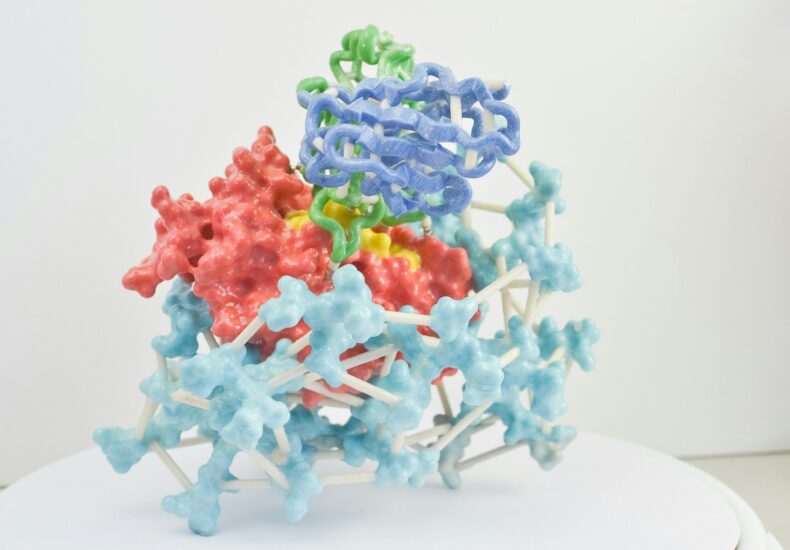
The Power of Antibodies: Guardians of the Immune System
Antibodies, also known as immunoglobulins, are remarkable proteins that play a vital role in the body’s immune response. These Y-shaped molecules are essential for identifying and neutralizing foreign invaders such as bacteria, viruses, and toxins. Their production and function are central to the body’s ability to defend itself against disease, and understanding their mechanisms provides insights into health, disease prevention, and therapeutic advancements.
What Are Antibodies?
Antibodies are specialized proteins produced by the immune system’s B cells. Structurally, they consist of four polypeptide chains: two heavy chains and two light chains, which together form the characteristic Y shape. At the tips of the Y, there are variable regions designed to recognize specific antigens—unique molecular markers on the surface of pathogens or harmful substances.
Functions of Antibodies
The primary function of antibodies is to bind to antigens and neutralize threats. Here are the key ways they accomplish this:
- Neutralization: Antibodies directly bind to toxins or pathogens, blocking their ability to enter or harm host cells.
- Opsonization: By coating the surface of pathogens, antibodies mark them for destruction by phagocytic immune cells such as macrophages.
- Complement Activation: Antibodies initiate the complement system, a series of protein reactions that destroy pathogens by lysing their membranes.
- Prevention of Pathogen Spread: Antibodies agglutinate pathogens, clumping them together to prevent their movement and facilitating easier removal.
- Immune Memory: Once a pathogen is neutralized, memory B cells “remember” its antigen, allowing for a quicker immune response if the pathogen is encountered again.
Production of Antibodies
The production of antibodies is a carefully coordinated process:
- Antigen Recognition: When a pathogen invades, its antigens are recognized by B cells. Each B cell has surface receptors specific to a unique antigen.
- Activation and Proliferation: Upon encountering its specific antigen, a B cell becomes activated. This process is enhanced by helper T cells that provide additional signals to ensure the response is appropriate.
- Differentiation into Plasma Cells: Activated B cells differentiate into plasma cells, which are antibody factories. Each plasma cell can produce thousands of antibodies per second.
- Memory Formation: Some B cells become memory cells, which remain dormant until the antigen is encountered again, ensuring faster and stronger antibody production in subsequent exposures.
The Need for Antibodies
Antibodies are essential for survival in a world teeming with pathogens. Their importance is evident in various contexts:
- Infection Defense: Antibodies are the first line of defense against infections, neutralizing pathogens before they can cause harm.
- Vaccination: Vaccines work by stimulating the immune system to produce antibodies and memory cells against specific antigens, providing long-term immunity without causing disease.
- Therapeutic Use: Antibodies are used in medicine to treat conditions like autoimmune diseases, cancer, and viral infections. Monoclonal antibodies, engineered in labs, are tailored to target specific pathogens or disease processes.
- Diagnosis: Antibody-based tests, such as ELISA and rapid antigen tests, are widely used for detecting infections and diseases.
Challenges and Future Prospects
While antibodies are potent, their function can sometimes go awry, leading to autoimmune diseases where the immune system attacks the body’s own tissues. Furthermore, pathogens like HIV and some cancers have evolved mechanisms to evade antibody detection. However, advances in biotechnology and immunology are paving the way for new therapies, including enhanced vaccines, therapeutic antibodies, and immune modulators.
Conclusion
Antibodies are indispensable guardians of the immune system, ensuring that the body can recognize, respond to, and remember pathogens. Their sophisticated mechanisms not only protect us from illness but also provide the foundation for medical breakthroughs. As research continues to expand our understanding, antibodies remain a cornerstone of health, immunity, and innovation in medicine.
Archives
Calendar
| M | T | W | T | F | S | S |
|---|---|---|---|---|---|---|
| 1 | 2 | 3 | 4 | 5 | 6 | 7 |
| 8 | 9 | 10 | 11 | 12 | 13 | 14 |
| 15 | 16 | 17 | 18 | 19 | 20 | 21 |
| 22 | 23 | 24 | 25 | 26 | 27 | 28 |
| 29 | 30 | 31 | ||||